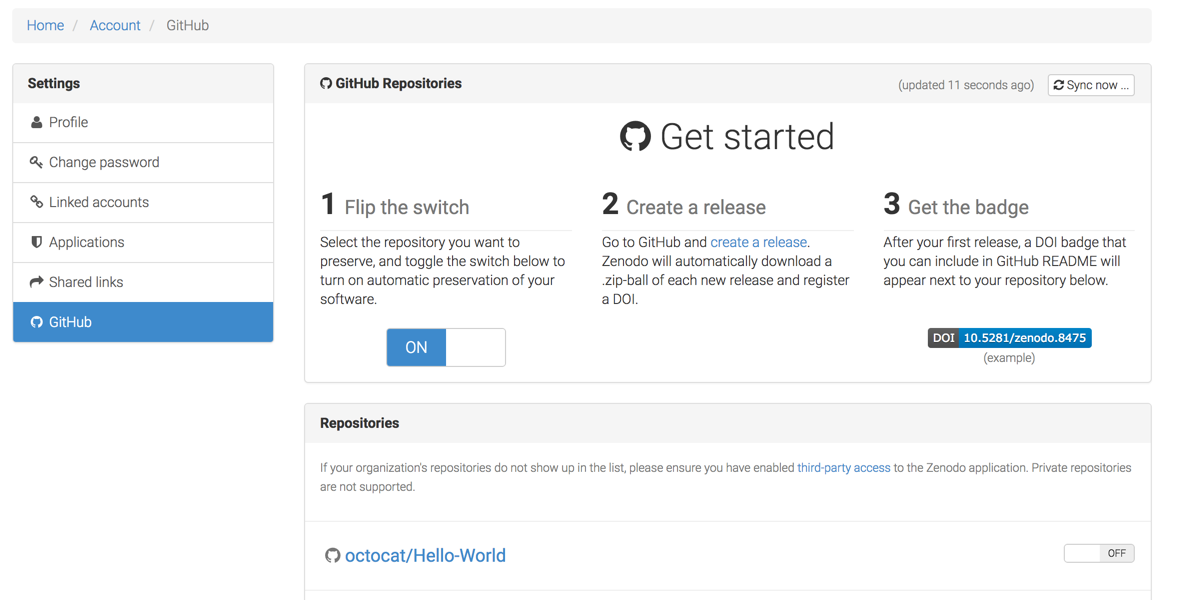Issuing a persistent identifier for your repository with Zenodo
To make your repositories easier to reference in academic literature, you can create persistent identifiers, also known as Digital Object Identifiers (DOIs). You can use the data archiving tool Zenodo to archive a GitHub repository and issue a DOI for the archive.
Tips:
- Zenodo can only access public repositories, so make sure the repository you want to archive is public.
- If you want to archive a repository that belongs to an organization, the organization owner may need to approve access for the Zenodo application.
- Make sure to include a license in your repository so readers know how they can reuse your work.
- Navigate to Zenodo.
- In the upper-left corner of the screen, click Log in.

- Click Log in with GitHub.

- Review the information about access permissions, then click Authorize application.

- Navigate to the Zenodo GitHub page.

- To the right of the name of the repository you want to archive, toggle the button from Off to On to enable it for archiving.

Zenodo archives your repository and issues a new DOI each time you create a new GitHub release. Follow the steps at "Creating releases" to create a new one.
Publicizing and citing research material with Figshare
Academics can use the data management service Figshare to publicize and cite research material. For more information, see Figshare's support site.